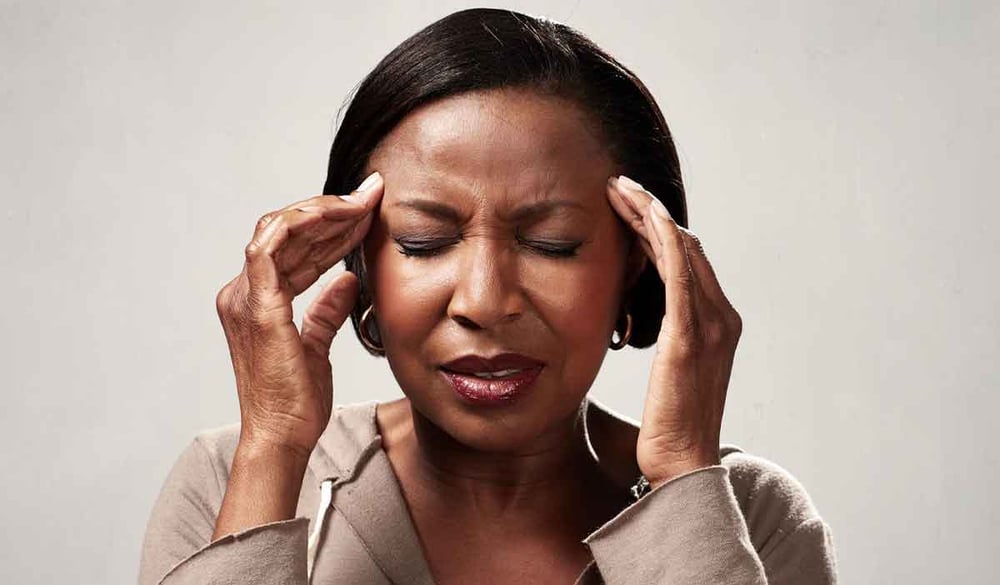We all know that stress isn’t good for us but for many, it seems that stress is a way of life. If you’re operating at a high level of stress regularly, it can be affecting your health in ways you don’t even realize.

The impacts of stress that we notice the most tend to affect our mood. When we are stressed we feel restless, anxious and overwhelmed. Stress can cause a short temper, lack of motivation or focus, and over time, can lead to depression. But stress doesn't just affect your mood - it also has real, measurable effects on your body's health.
If you're feeling stressed regulary - even daily - it's probably affecting your physical health in areas such as:
- Headache
- Muscle tension or pain
- Chest pain
- Fatigue
- Change in sex drive
- Upset stomach
- Sleep problems
High levels of stress have been linked to high blood pressure, heart problems, diabetes, skin conditions, asthma, infertility issues, and arthritis. Learning how to reduce your stress won't just make you feel more relaxed, it can help you live a happier, healthier life.
Tips for reducing stress in your life
Learn your triggers: You can't cope with your stress without knowing what causes it. Take a minute and think about things that cause stress in your life. Try this exercise: for a week, write down or take notes in your phone each time you feel stressed and what started it. Reviewing those notes can help your identify habits that should be changed.
Set realistic goals: This could also be titled: learn to say no. If you are feeling overwhelmed, try eliminating any activity that is not absolutely necessary. Ask yourself, "What really needs to be done? Is this deadline realistic?" No one is perfect, so don't expect perfection from yourself or others. Delegate or ask for help if you need it. And remember, there is more than one way to solve a problem. Being flexible can help you feel less stressed about a situation.
Set aside quiet time: Whether you find relief in guided meditation or listening to peaceful music, taking time to relax and clear your mind is beneficial. Even ten minutes of quiet time a day can make a difference and bring relief from stress.
Slow down: When you start feeling overwhelmed, try taking one task at a time. Make a list of things you need to do and prioritize those items. Once you have tackled something, mark it off your list. This can bring about feelings of accomplishment and boost confidence.
Be active: Regular exercise is a great way to reduce stress, and it benefits both the body and the mind. Starting an exercise program isn't as hard as it sounds. It can be as easy as taking a 30 minute walk on most days of the week. Ask a friend to tag along with you or consider joining a local gym for some training ideas.
Find a hobby: What do you love to do? By setting aside time for your favorite hobby, you will remove yourself from life's stresses. Whether it is trying out a new recipe, planting in your garden, or playing pool, you will be giving your brain a welcomed break.
Practice a healthy lifestyle: A healthy diet gives your body and brain the energy it needs to face your stress triggers. Try these heart healthy diet tips to get started. A healthy lifestyle is more than just food - if you smoke, it's time to quite. Moderate your alcohol intake. Cut back on caffeine. All of these changes will help you feel better and can help relieve stress.
Talk it out: A conversation with friend or family member can help you relax. And listening to someone else can take the focus off of yourself-something we all need to do every know and then. If you feel that you need more help in dealing with a difficult situation, there are therapists and support groups available. Your doctor may be able to recommend someone.
How are you resolving stress now?
If you're feeling stressed all the time, take a look at how you're relieving that stress. Over time, unhealthy stress management will compound your problems. Take a moment to picture how you can manage an upcoming stress trigger. This can work with just about anything, whether it is an important meeting at work, a big move, or a final exam. Going through the challenge in your mind can help you to feel more confident. In other words, think ahead and make a plan of action.
Remember, nobody's perfect. Not even you. Step back and resist the urge to do it all, or worse, fix what you perceive to be everyone else's errors. This isn't easy to do! But it is worth working at it. When things get tough, remember to ask for help.
Where to turn when you need help with stress
Your family medicine provider is the best place to start if you're having difficulty with stress. Your primary provider can refer you to a cardiologist or psychologist if needed. They can also help determines the best steps to take towards a healthier lifestyle.




